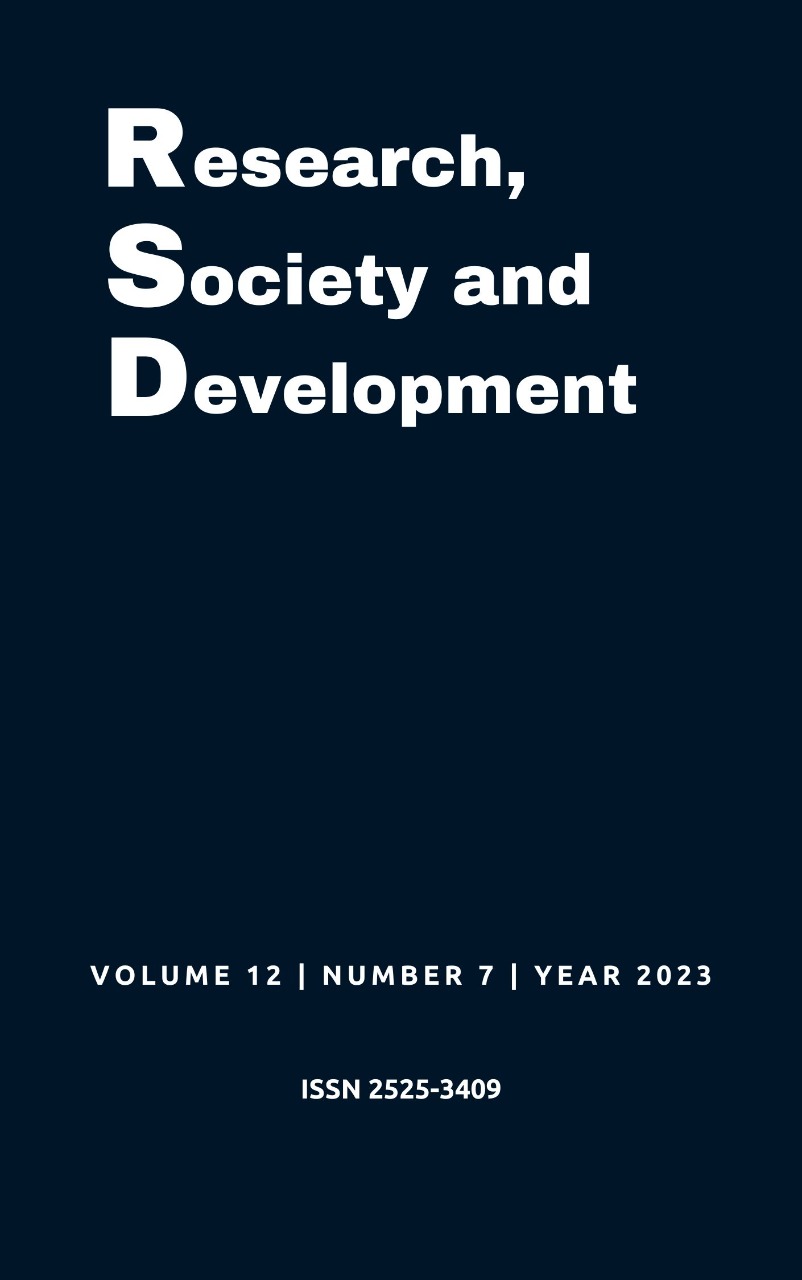A power reduction approach to green cloud computing
DOI:
https://doi.org/10.33448/rsd-v12i7.42407Keywords:
Green cloud computing, Cloud simulation, Energy efficiency.Abstract
As cloud computing becomes increasingly prevalent in our daily lives and the business environment, it is essential that we are aware and proactive in managing the environmental impact of this technology. Green cloud computing is an approach that seeks to reduce energy consumption and CO2 emissions associated with cloud computing, while still providing the necessary functionality and performance. Through the use of simulators, such as CloudSim Plus, and the implementation of efficient algorithms for resource management, this study demonstrated that it is possible to achieve significant improvements in energy efficiency, reductions in operational costs, and a decrease in environmental impact without reducing computational capacity. An improvement of at least 49% in energy efficiency was observed, a reduction of at least 7% in direct costs, and a decrease of 50% in equivalent CO2 emissions. It is important to emphasize that these improvements were achieved without compromising the performance of the systems, as the processing times remained unchanged.
References
Agrawal, M. N.; Saini, M. J. K. & Wankhede, P. (2020). Review on green cloud computing: A step towards saving global environment.
Araújo, R. S. et al. (2022). Fontes de energias renováveis: pesquisas, tendências e perspectivas sobre as práticas sustentáveis. Research, Society and Development, 11(11), e468111133893-e468111133893.
Barbierato, E. et al. (2019) Exploiting cloudsim in a multiformalism modeling approach for cloud based systems. Simulation Modelling Practice and Theory. 93, 133-147.
Bash, C. et al. (2011). Cloud sustainability dashboard, dynamically assessing sustainability of data centers and clouds. Proceedings of the Fifth Open Cirrus Summit, Hewlett Packard, CA, USA, Citeseer. 13.
CloudSim (2016). Full-featured and fully documented cloud simulation framework. http://cloudsimplus.org/.
da Silva, D. T., Rodrigues, J. A., Manacero, A., Lobato, R. S., Spolon, R., & Cavenaghi, M. A. (2022, October). Modeling and simulation of cloud computing with ispd. In Anais do XXIII Simpósio em Sistemas Computacionais de Alto Desempenho (pp. 217-228). SBC.
Epa, U. S. E. P. A. (2022). Greenhouse Gas Equivalencies Calculator. https://www.epa.gov/energy/greenhouse-gas-equivalencies-calculator.
Farahnakian, F. et al. (2015). Using ant colony system to consolidate vms for green cloud computing. IEEE Transactions on Services Computing. 8(2), 187-198, 2015.
França, C. G. et al. (2020). Análise comparativa de modelos de previsão de geração de energia eólica baseados em machine learning. Revista de Sistemas e Computação-RSC. 9(2).
Gade, A.; Bhat, N. & Thakare, N. (2018). Survey on energy efficient cloud: A novel approach towards green computing. Helix, 8(5), 3976-3979.
Garg, S. K.; Yeo, C. S. & Buyya, R. (2011). Green cloud framework for improving carbon efficiency of clouds. European Conference on Parallel Processing, Bordeaux, França, 17, 491-502.
Jain, R. (2010). Computer systems performance analysis. https://www.cs.wustl.edu/~jain/iucee/ftp/k_01int.pdf.
Jena, S. R. et al. (2020). Cloud computing tools: inside views and analysis. Procedia Computer Science, 173, 382-391.
Khan, R. & Khan, S. U. (2016). Achieving energy saving through proxying applications on behalf of idle devices. Procedia Computer Science, 83, 187-194.
Makaratzis, A. T.; Giannoutakis, K. M. & Tzovaras, D. (2018). Energy modeling in cloud simulation frameworks. Future Generation Computer Systems, 79, 715-725.
Mandal, A. K. & Dehuri, S. (2019). A survey on ant colony optimization for solving some of the selected np-hard problem. International Conference on Biologically Inspired Techniques in Many-Criteria Decision Making. 85-100.
Masdari, M.; Zangakani, M. (2020). Green cloud computing using proactive virtual machine placement: challenges and issues. Journal of Grid Computing, Springer, 18(4), 727-759.
Meyer, V. et al. (2018). Simulators usage analysis to estimate power consumption in cloud computing environments. Symposium on High Performance Computing Systems (WSCAD). 70-76.
Radu, L. D. (2017) Green cloud computing: A literature survey. Symmetry, Multidisciplinary Digital Publishing Institute. 9(12), 295.
Saboor, A. et al. (2022) Enabling rank-based distribution of microservices among containers for green cloud computing environment. Peer-to-Peer Networking and Applications, Springer, 15(1), 77-91.
Saha, B. (2018). Green computing: current research trends. International Journal of Computer Sciences and Engineering, 6(3), 467-469.
Silva Filho, M. C. et al. (2017). Cloudsim plus: A cloud computing simulation framework pursuing software engineering principles for improved modularity, extensibility and correctness. Symposium on integrated network and service management (IM). 400-406.
Stergiou, C. L.; Psannis, K. E. & Ishibashi, Y. (2020). Green cloud communication system for big data management. 3rd World Symposium on Communication Engineering (WSCE). 69-73.
Toledo Junior, T. J. & Bruschi, S. (2020). Epcsac-extensible platform for cloud scheduling algorithm comparison. Anais Estendidos do XXI Simpósio em Sistemas Computacionais de Alto Desempenho, evento olline. 46-53.
Wadhwa, M. et al. (2019). Green cloud computing-a greener approach to it. International conference on computational intelligence and knowledge economy (ICCIKE). 760-764.
Yang, J. et al. (2018). Ai-powered green cloud and data center. IEEE Access, IEEE, 7, 4195-4203.
Zong, Z. 2020. An improvement of task scheduling algorithms for green cloud computing 15th International Conference on Computer Science & Education (ICCSE). 654-657.
Downloads
Published
Issue
Section
License
Copyright (c) 2023 Thiago Nelson Faria dos Reis; Mário Meireles Teixeira; Carlos de Salles Soares Neto

This work is licensed under a Creative Commons Attribution 4.0 International License.
Authors who publish with this journal agree to the following terms:
1) Authors retain copyright and grant the journal right of first publication with the work simultaneously licensed under a Creative Commons Attribution License that allows others to share the work with an acknowledgement of the work's authorship and initial publication in this journal.
2) Authors are able to enter into separate, additional contractual arrangements for the non-exclusive distribution of the journal's published version of the work (e.g., post it to an institutional repository or publish it in a book), with an acknowledgement of its initial publication in this journal.
3) Authors are permitted and encouraged to post their work online (e.g., in institutional repositories or on their website) prior to and during the submission process, as it can lead to productive exchanges, as well as earlier and greater citation of published work.


